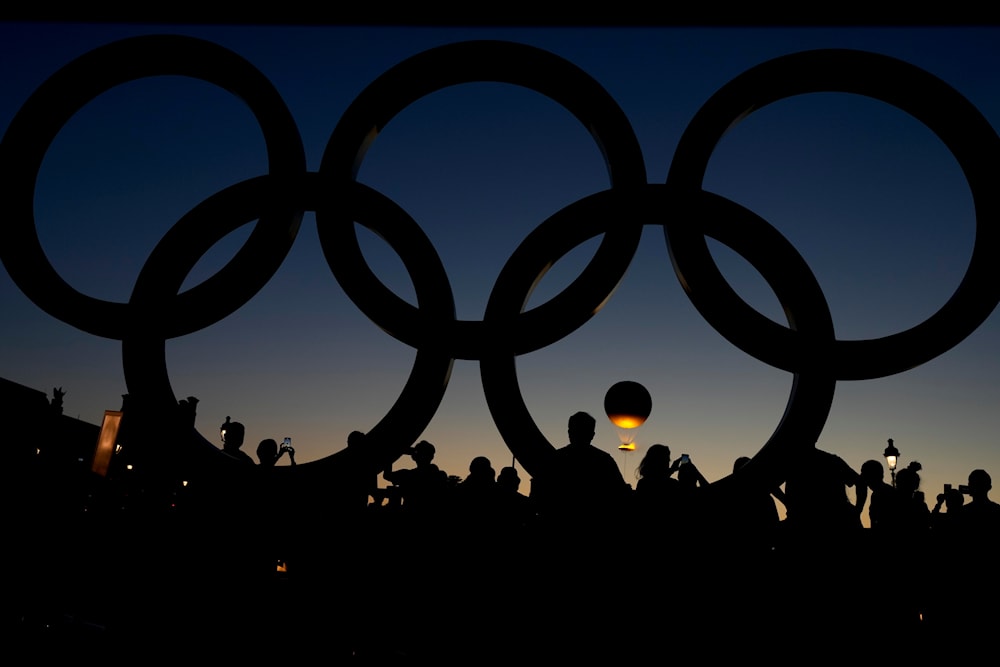Human rights experts criticize 2024 Paris Olympics security
The three experts commissioned by the United Nations outlined how some of France's security measures during the 2024 Olympics in Paris were "unnecessary" and discriminatory.
-

People watch the cauldron rise at sunset by the Olympic rings during the 2024 Summer Olympics, Monday, Aug. 5, 2024, in Paris, France (AP)
Three human rights experts criticized the security measures deployed during the 2024 Paris Olympics in a report published on Tuesday that described some measures taken by France as "unnecessary or disproportionate."
The three experts who were commissioned by the United Nations stated that "French authorities took a number of reasonable measures to ensure that the Olympic Games were free from terrorist violence," adding that some measures were excessive, unnecessary, and "discriminatory or even unlawful."
The report highlighted that France has faced significant terrorist threats in recent years, emphasizing that under international law, governments are obligated to take decisive action to prevent threats to life from terrorism while upholding human rights law.
The report stated, "Under international law, governments must act diligently to prevent threats to life posed by terrorism, but must always comply with human rights law."
"In too many cases, security measures were seemingly applied in an indiscriminate or overbroad manner, that was not necessary or proportionate to meet any specific, evidence-based risks posed by particular individuals," the report said.
The experts pointed out "unprecedented surveillance," which included drones and the use of algorithmic video tools that deeply artificial intelligence, adding that they found "patterns of discriminatory policing, targeting individuals or groups for political views, religious affiliation or ethnic background."
"Some of the measures arbitrarily interfered with the freedoms of expression, assembly and association, as well as the rights to privacy, reputation and liberty, and to participate in cultural life," according to the authors of the report.
Some of the security measures Paris took appeared to aim at preventing protests that could disrupt the Olympics, and some of them even violated French laws, evidenced by the "higher than usual number of annulments by the courts".
The report was signed by Ben Saul, a law professor at Sydney University and UN Special Rapporteur on human rights and fundamental freedoms in counterterrorism, along with Gina Romero, Colombia’s Special Rapporteur on the right to freedom of peaceful assembly and association, and Alexandra Xanthaki, a Brunel University law professor and UN Special Rapporteur on cultural rights.
They urged Paris "to conduct an independent and impartial review of the security measures used during the Olympic Games" in order to "draw lessons for France and other countries on how to secure future major public events".

 3 Min Read
3 Min Read








